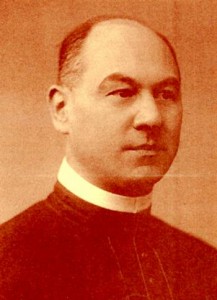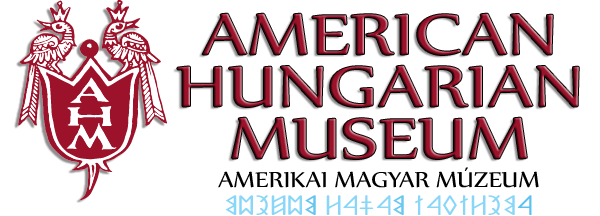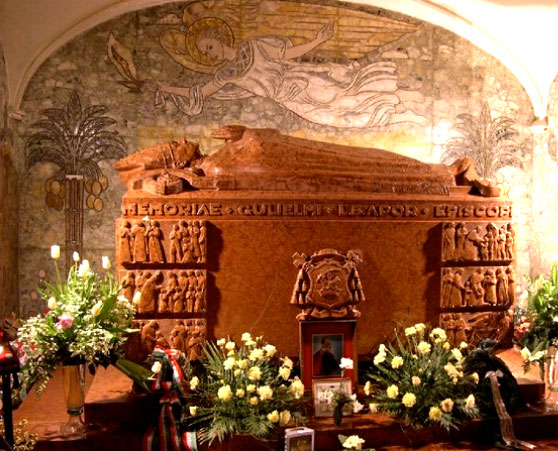
Blessed Vilmos Apor
By Lőrinc Orosz
The first in the Twentieth Century to be raised to the Altar, Vilmos Apor became the thirty-eighth Hungarian to be so honored and the third Bishop of Győr who died a martyr’s death. The other two died in the battles of Muhi, (against the invading Mongols), and Mohács (against the Turks).
Some biographical data: he was born in Transylvania on the 29th of February 1892, to a leading family of the region. Educated by the Jesuits in Hungary and Germany he completed his theological studies in Innsbruck, Austria. One week after ordination on August 24, 1915, he is already a chaplain in the city of Gyula. After a short service on the trains transporting the wounded from the Russian battlefront and a year as a prefect of the Seminary, he found himself once more back in Gyula, this time as Pastor.
It was in the same city of Gyula he received his Bishop’s hat on February 24, 1941. He was murdered by the Soviets, and died on April 2, 1945, Easter Monday.
Among the rapidly changing circumstances of World War II, the martyred Bishop proved to have a visionary’s gasp on events. His unwavering determination to follow in Christ’s footsteps was a strong influence on the young Seminarians in his charge. He was a staunch defender of Catholic values and of religious education even in the confused and most dangerous times after World War I, when the “Dictatorship of the Proletariat” was proclaimed in Hungary. His energetic and confident insistence saved a number of prisoners from execution by the Rumanian military, when he traveled to Bucharest and saw Queen Maria of Romania, winning freedom for the Hungarians imprisoned in the camps of Romania.
Social problems were always at the center of his keen awareness. He hid his aristocratic background by a constantly humble and friendly bearing, giving confidence to all who would approach him. There exists a painting of his act of untying his shoes and giving them to a poor person he met, who had none. Serving others was his life’s meaning. Recognizing the influence of the Press, he started “Church Announcer” in 1921. In his region, he organized the Hospital- and Prison Missions. The strengthening of the Catholic Faith in rural areas, was accomplished by regular Missions held at village churches.
He personally taught classes in religion to lead to God and to strengthen the faith of as many young people as possible. The series of large-scale “Catholic Conferences in the Lowlands” fermented considerable religious activity and interest.
He realized that the many projects to be accomplished made the presence of male and female religious orders imperative. His vision had Europe-wide dimensions. Just as no terrorist activity could intimidate the young priest in the city of Gyula, his voice could also not be silenced later, when he was bishop of Győr.
The drift of his nation toward disaster filled him with sorrow. He raised his voice against the dangers of the many “isms” which were increasingly offered to his flock. It became obvious to him that the teachings of the Catholic Church should be practiced in political life by the leaders of the nation. He strongly felt the duty of the Church regarding the anti-Jewish laws promulgated at the time. He protested and incessantly lobbied personally for the persecuted. He would not be seen at any location with those in power, and hid the persecuted in the shelter of his residence. Threats by powerful politicians soon came, as expected, but events were too far advanced by then.
The Shepherd stayed with his flock, even at the approach of the battlefront. His priests also held out, and stayed put during the battle. Not one of them left the country, abandoning his parish. Aware that sooner or later he has to confront the occupying Russian military, brutalizing the population, he said at one occasion: One has to die sooner of later anyway, so it might as well be at such an occasion that one gives up his life. His sacrifice was accepted by the Father on Good Friday 1945, as the Bishop was defending the honor of the girls and women in the shelter of his residence. One of the machine gun bullets he received was fatal. He expressed gratitude that the Lord gave him such a Good Friday. His last words were: I offer all my sufferings for others, as an atonement. I ask the Lord not to hold the crimes they commit against the Church in their blindness, against them. The good shepherd gives his life for his sheep.
After all those years, on November 9, 1997 it felt good to be a Catholic, to be a Hungarian, and to be on St. Peter’s Square in Rome. It felt good to have come from the same place he did, our hearts were full of joy that we belonged together, and that the powers of darkness did not, after all, prevail against this holy person. His Bishop’s motto was: The Cross gives strength to the weak, and meekness to the strong.
We carried much joy back home with us, as happy is the nation which has such examples before it. Let his example and martyrdom be the seed of the renewed Church in Hungary!
From the Hungarian by István Sándor
American Hungarian Museum, No. 56, 1998

